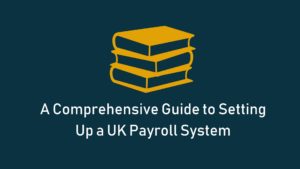Liberalism and libertarianism are two distinct political ideologies that are frequently employed by governments or those seeking political office. However, the two words have since been used in a variety of contexts, including the economy, leadership, human rights, and property management.
Their political significance varies from region to region. As a result, the words have continued to perplex many people.
In general, liberalism in politics refers to a leadership style in which the government emphasises and protects citizens’ rights and freedoms. Liberals are perceived to be on the left side of the political spectrum in the United Kingdom and North America, for example. They are distinguished by their strong support for welfare programmes.
Liberals in continental Europe, on the other hand, are classified as being to the right of the centre.
This is because the groups are in favour of the free-market initiative. A simple definition of liberalism in American politics is opposition to socialism. Surprisingly, in Australia, liberalism is associated with conservatism.
Libertarianism emphasises citizen liberty with little intervention from the government. While liberals advocate for guaranteed rights and liberties, libertarians advocate for individual liberty with minimal government intervention.
In the United Kingdom, Liberal Democrats are political leaders whose economic views are a mix of market liberalism and social democracy. They believe that property rights are not strong enough to withstand various forms of redistributive taxation. Liberals are rare in the UK compared to the US, but their beliefs are nearly identical.
In the United States, libertarians believe that property rights are so strong that they can withstand any form of redistributive taxation. Unlike leftists who advocate for economic restrictions, libertarians advocate for more liberalised social issues such as free speech, voluntary association, business, trade, and education. They prefer a smaller government that is less involved in social issues.
Political Ideologies and Economic Growth
Both the liberal and libertarian political ideologies have a significant impact on economic growth. This is due to the fact that changes in the political environment have an impact on business strategy and operations.
As a result, it is critical for owners of small, medium, and large corporations to understand and monitor the political environment. Political philosophies result in government actions that have a variety of effects on the economy:
It has an impact on the market attractiveness of a specific region. Good ideologies entice investors and help businesses grow.
Government legislation has an impact on a company’s relationships with its suppliers, customers, and partners.
Because the government is a major consumer, favourable ideologies would result in increased revenue for respective suppliers.
Political ideologies in the United Kingdom have shifted dramatically in recent years. Following the changes is useful for entrepreneurs in predicting possible business trends in the near future. Several studies have found that political norms and perceptions have shaped a variety of economies. In fact, they have an impact on a country’s economic performance.
Scholars contend that libertarian societies have experienced faster economic growth in recent years than liberal counterparts.
According to their research, libertarian societies have developed better policies and systems that necessitate little government intervention. This has greatly contributed to the disparity in development levels.
If you want to start a small business in the UK, FBS Accountants is the ideal partner for you on this difficult journey. We will assist you in developing a tailored business plan that fits the current business environment through our team of experienced and highly qualified business experts.
For more information about how FBS Accountants can help you setup your business, get in contact with us today call: 0204 526 5195 or drop us a line hello@finchleybusiness.co.uk







